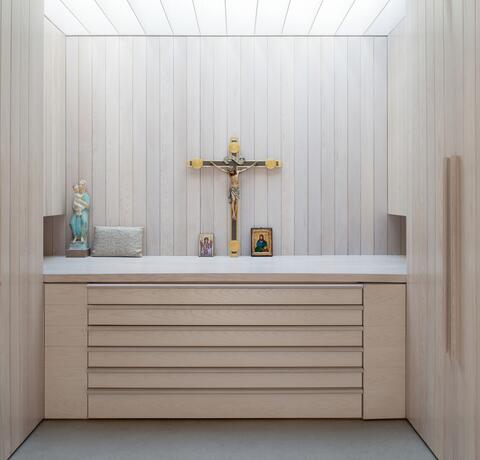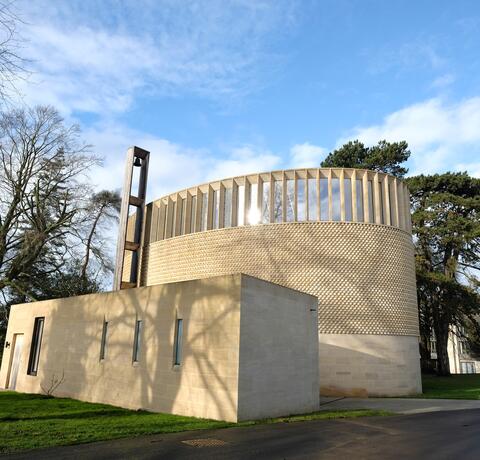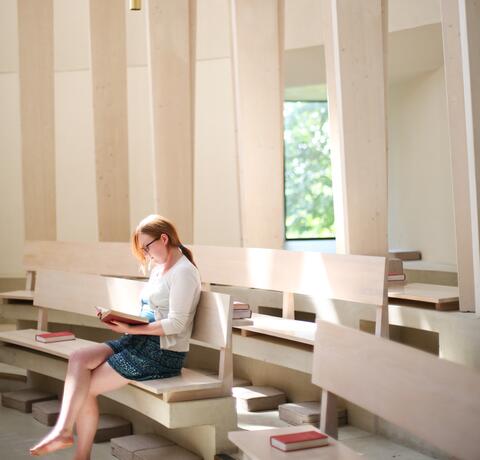Endowed by the Cuddesdon Sisters, their brief to the architect was "for the chapel to be foremost a place for the cultivation of personal prayer as well as of public worship. We knew that what was needed was not just a building but a work of art which would touch the spirit.” A RIBA competition was held which set out the aspiration for a building of the ‘highest architectural quality’. A total of 126 architects from all over the world applied to take part in the competition, but Niall McLaughlin’s scheme was the unanimous choice of the Jury Panel.
Chair of the Panel and RIBA architect adviser for this competition David Morley said: “The relatively small scale of this project contrasts with its major significance as an opportunity to set new standards for liturgical design. The competition inspired wide interest from the UK and internationally and the Ripon College community were bold in their openness to consider un-traditional designs. McLaughlin’s proposal stood out because of the depth of understanding and inspiration it demonstrated from a strategic to a detailed level. The elliptical shape with its two focal points on the altar and lectern is a brilliantly simple innovative response to the traditional ‘college’ configuration for a chapel. This simple idea is just part of an approach that is both poetic – ‘the first architectural image was of a buoyant, tethered boat’ – and technically sophisticated.
Edward King
Born in London in 1829, Edward King, both as a priest and then as a bishop, was revered for the holiness of his life and the wisdom of his counsel. He was chaplain, then principal, of Cuddesdon Theological College, followed by a dozen years as a professor of theology in Oxford, during which time he exercised a great influence on a generation of ordinands. In 1885, he was consecrated bishop of the diocese of Lincoln, a position he held until his death. His advocacy of Catholic principles involved him in controversy, but his significant gift to the Church was his example as a pastoral and caring bishop to both clergy and laity.
Visiting the Chapel
Visitors are welcome on weekdays between 10am and 4pm. Please let us know you are coming so we can advise you of any scheduled worship by contacting Reception on 01865 874404 or [email protected].




